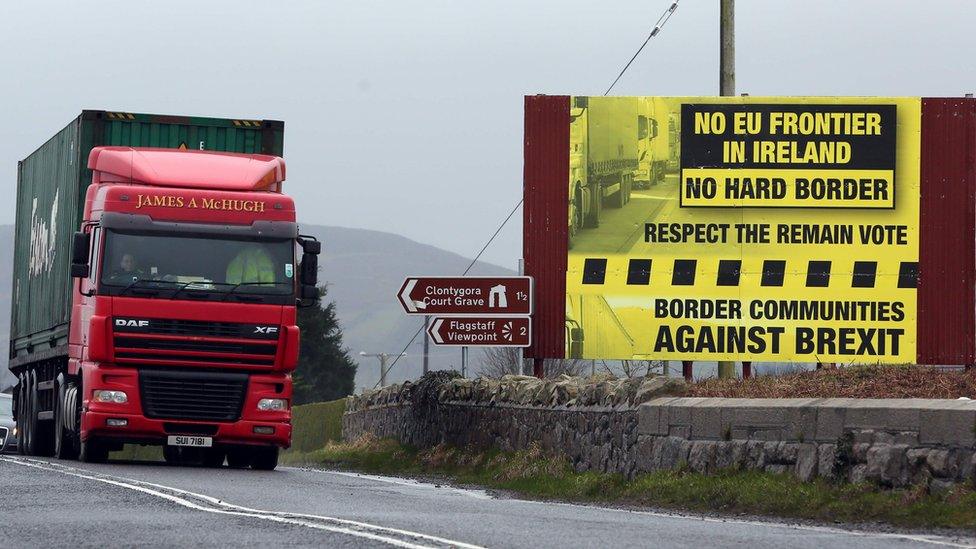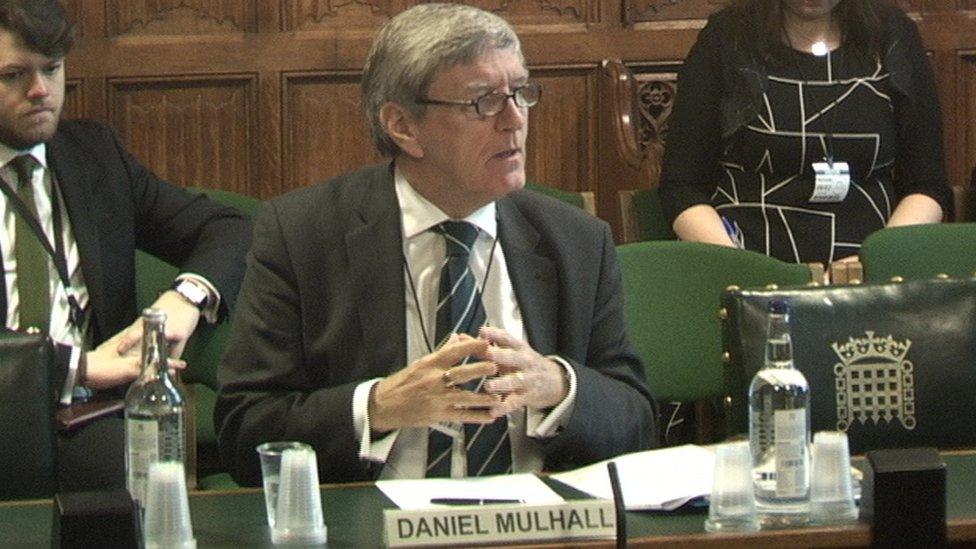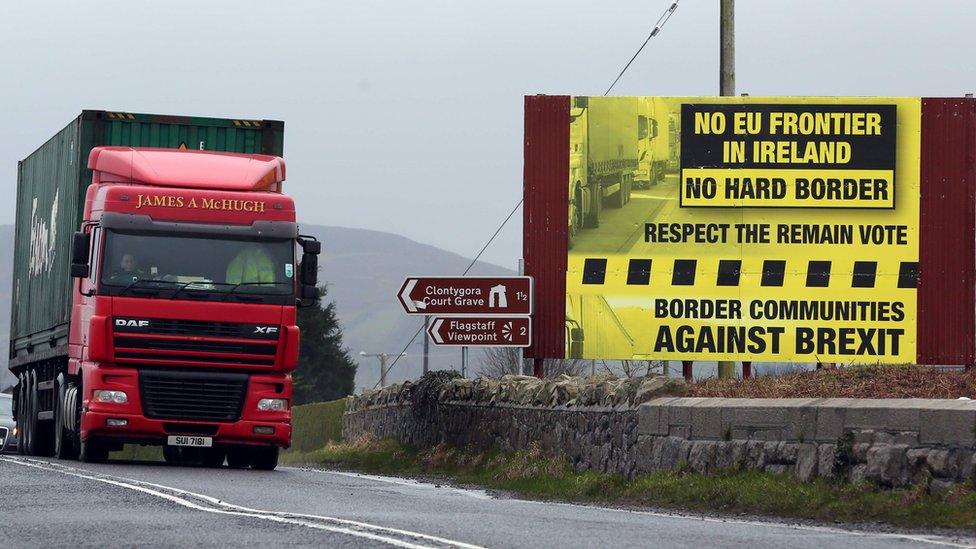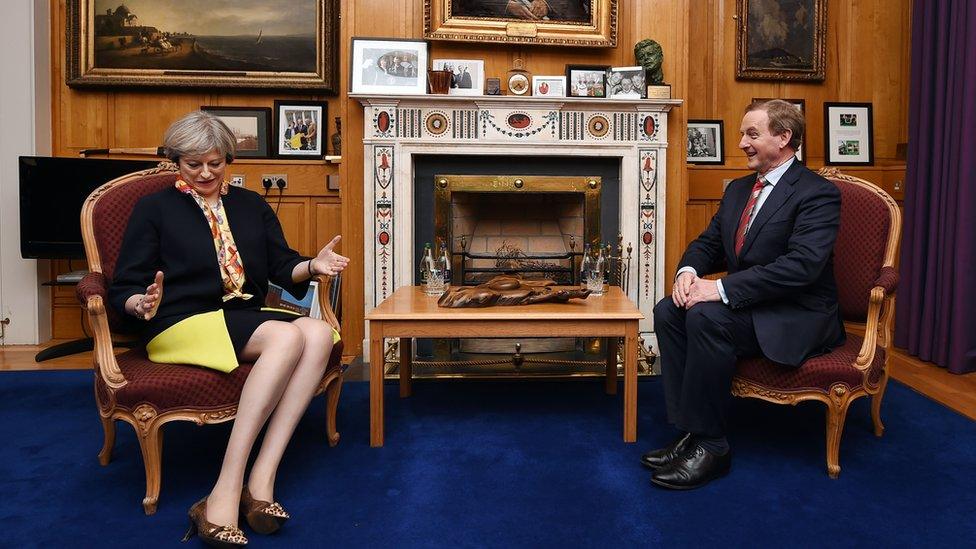Brexit: Irish border crossings 'impossible to monitor'
- Published

Theresa May said she wants to see a 'seamless, frictionless border' between Northern Ireland and the Republic
The Irish ambassador to the UK has described the Irish border as "invisible" and said it would not be possible to monitor the numerous crossing points after Brexit.
Dan Mulhall was giving evidence to the Westminster-based Northern Ireland Affairs committee.
The committee is investigating the post-Brexit border between Northern Ireland and the Republic.
Mr Mulhall said there is no support for a "hardening" of the border.
He told MPs: "It is universally acknowledged that the open and virtually invisible border that exists at present confers benefits on both parts of Ireland and on all communities in Northern Ireland.
"I am not aware of anyone who thinks that a hardening of that border would be an acceptable outcome."
'Not straightforward'
Commenting on the negotiations that would lead to the UK leaving the EU, the seasoned diplomat of nearly 40 years said talks between officials and politicians would not be straightforward.
"Nobody can say how these negotiations will end up," he added.
He said those involved in discussions should "avoid any manifestation of a hard border".

Mr Mulhall said there was no support for a 'hardening' of the border
Mr Mulhall also told MPs that 1.85m cars, 177,000 lorries and 208,000 light vans are recorded crossing the border each month.
In his second evidence session on the Irish border, Mr Mulhall faced questions from a series of Northern Ireland MPs.
Pressed on how the border could be controlled, Mr Mulhall said: "I just don't think it's remotely possible to think in terms of having a border that would really control every movement of goods and people."
In his evidence session, Dan Mulhall also said it was "essential that Brexit does not affect the Good Friday Agreement, and that the people of Northern Ireland can have confidence that this will be the case".
Since the EU referendum vote, applications for Irish passports have increased dramatically.
Mr Mulhall pointed out that in Great Britain, applications had gone up by 40%, and in Northern Ireland applications had risen by 20%.
- Published1 February 2017

- Published31 January 2017
